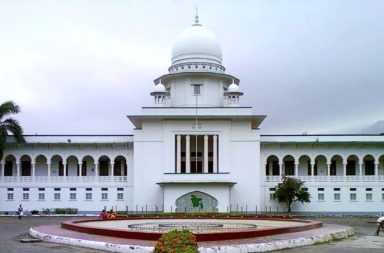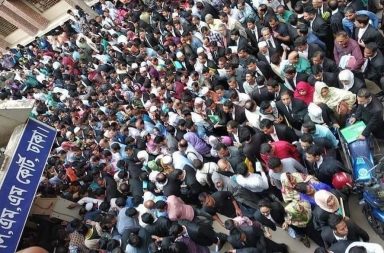By Md Shahnawaz Khan Chandan
The most recent national education policy of Bangladesh was enacted in 2010. Since 1971 till date, four education commission reports have been promulgated in Bangladesh and we got two full fledged education policies. However, most of the promises and aspirations of those policies never came into fruition due to lack of a legal framework which would oblige and enable the citizens to abide by the provisions made by the policy.
This time the government with an unprecedented positive gesture started working on formulating this necessary legal framework. The consequence of this effort is that finally we are going to get an education law after six long years. However, the process started in 2011 immediately after circulating the policy. The first draft of the law was formulated in 2012 and another draft was published in 2013. But, both the drafts were withdrawn for further modification. Then after two years of silence, the third draft of the law was published on October 19, 2015, but within a week the draft was also withdrawn. Due to the criticism over the reduced penalty against the criminals involved in leaking question papers of the public exam it happened. Another draft has recently been published reinstating the previous penalty.
Finally the draft education law titled as ‘Education Act, 2016’ was endorsed by the cabinet and it was published on April 8 for public comments. This new draft has brought in many significant changes in the education sector such as introduction of pre-primary education in all the government primary schools, banning of admission exam in class one, penalty for applying corporal punishment, punitive measures against producing or selling notebooks, guidebooks, running private tuition and coaching centers and so on. It has also stated that all the educational institutions at primary and secondary level will maintain a core curriculum.
According to this law, a managing committee has been made a compulsory requirement for every institution and one person will not be able to head more than one committee. It is, undoubtedly an appreciable measure as it will reduce the influence of local influentials to manipulate the school’s academic and administrative decisions.

Despite so many positive changes, this draft education law is not above questioning. This new law has banned any form of coaching center and private tuition, and sanctioned harsh punishment for the individuals associated with this business. Although the intention behind this provision was to increase the efficiency of the classroom, the lawmakers should also take the reality into their consideration.
Increasing classroom efficiency is a long term process and there is no point of restricting the students’ learning opportunity within a particular classroom. Many students need extra attention and not to mention, the students, who are very much dependent on this culture, will find it very difficult to obey this new law under the current circumstances.
This law also promises a strong Higher Education Council to improve the quality of higher education. However, the law could have talked about student politics which is mostly responsible for disrupting the academic activities of the country’s colleges and universities. The culture of forming students’ union has also disappeared due to corrupt partisan politics. This law could give an effective solution to the extreme crisis of student politics which has been destroying the quality of higher education for a long time.
The fact that the government has been trying relentlessly to construct a legal framework to guarantee the citizen’s right to education surely deserves appreciation. However, the success of this effort depends on how the lawmakers are going to remove the existing loopholes and how this law will be implemented. Otherwise, no law- no matter how perfect it is, can make any difference in the system.
For better understanding – you can have a look at the National Education Act 2016 (draft)
____________________________________________
Md Shahnawaz Khan Chandan is a feature writer of The Daily Star. He regularly writes on governance, politics, human rights and cultural diversity. He can be contacted at twitter – @nawazk28
The Article was first published at the Daily Star (0n 29th April 2016); Republished here with the writer’s consent.



